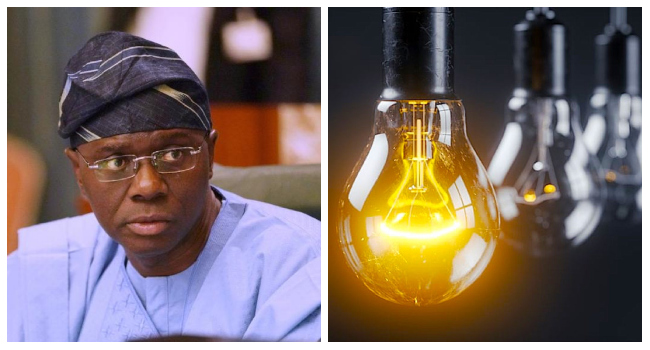
LAGOS GOVT SET TO POWER 40, 000 HOMES WITH ELECTRICITY GENERATED FROM SOLID WASTE
The Lagos State administration said that it had made significant progress towards converting the tonnes of solid garbage produced in the city into energy that could be used to power forty thousand houses throughout the state.
This is in light of the fact that Governor Babajide Sanwo-Olu officially announced on Monday his collaboration with Harvest Waste Consortium, a Dutch company, to build a high-efficiency waste-to-energy plant on the Epe landfill. This plant will use cutting-edge technology to produce clean energy from commercial, industrial, and municipal solid waste.
According to a statement from Gboyega Akosile, Special Adviser and Publicity to the Lagos State Government, the technology will improve energy security and diversification by producing between 60 and 75 megawatts of baseload electricity annually, which is expected to remove about 40,000 homes from the national electricity grid.
The Ministry of the Environment and Water Resources initiated the relationship with the Amsterdam, Netherlands-based company, Akosile said, and the Lagos State Office of the Public-Private Relationship (PPP) oversaw the signing of the agreement.
According to the statement, which quoted Sanwo-Olu, the partnership was sealed to bring about creative alternatives towards lowering environmental pollution, enhancing air quality, and stopping the degradation and contamination of water resources that posed threats to the state’s quality of life.
In his remarks, the governor hailed the cooperation as a “monumental step” forward for his administration’s waste management policy and emphasised that it was another significant step towards creating a clean, healthy, and sustainable city.
He said: “Today marks a significant milestone in the journey towards a cleaner, healthier and more sustainable Lagos, as we formalise a partnership with Harvest Waste Consortium. This is a collaboration that promises to transform waste management and energy production in our state.
“The growth of our population signifies progress and opportunity, just as it presents challenges, particularly in managing the increasing volumes of municipal solid waste. We sought innovative and sustainable solutions through extensive consultations, visits, and a thorough exchange of information with our partners from the Netherlands.
“We are thrilled to announce the construction and operation of a high-efficiency waste-to-energy plant in Lagos. This state-of-the-art facility will be built with the capacity to process 2,250 tonnes of waste daily, representing a monumental step forward in our waste management strategy. The plant will not only provide a sustainable alternative to the current practice of waste dumping, but it will also divert more than 95 per cent of our waste from landfill sites.”
Sanwo-Olu said the initiative, would significantly reduce the environmental footprint of Lagos waste disposal methods, with the plant expected to trap about 550,000 metric tons of Carbon dioxide and other greenhouse gases emitted daily from dumpsite.
Beyond the environmental benefits, the governor said the project, which has over 25 years of operational lifespan, would stimulate economic activities around the initiative, while attracting major investments to the State and creating jobs.
Sanwo-Olu said the technology had not only proven reliable, but had also been tested by the European Commission as the best available technology in terms of efficiency.
“The facility will ensure that the potentially harmful effects of municipal solid waste are minimised, thereby protecting public health and the environment. This project will not only enhance public health and well-being but also contribute to the circular economy by reducing landfill dependency and promoting recycling,” the Governor said.
Commissioner for the Environment and Water Resources, Tokunbo Wahab, said the partnership created a new mandate for Lagos to seek solid waste management solutions.
He said the partnership would make the state turn its burden to wealth and create new value from waste conversion.
The partnership, Wahab said is fully backed by the Dutch government.
Deputy Consul General of the Netherlands Consulate, Leonie Van der Stijl, said the partnership presented the possibility of international collaboration to solve local challenges, noting that Lagos, through the pact, became the first partner of the Dutch waste management.
The envoy gave assurance of the Dutch government’s commitment to the success of the agreement.
Managing Director of Harvest Waste Consortium, Evert Lichtenbelt, said the firm had built an international reputation in properly managing solid waste.
“Amsterdam and Lagos share similar challenges in managing population and waste. What we do is export knowledge on managing waste properly. This MoU has set a good pace for both partners. We proposed to manage part of the solid waste of Lagos and in future, we can expand,” Lichtenbelt said.
